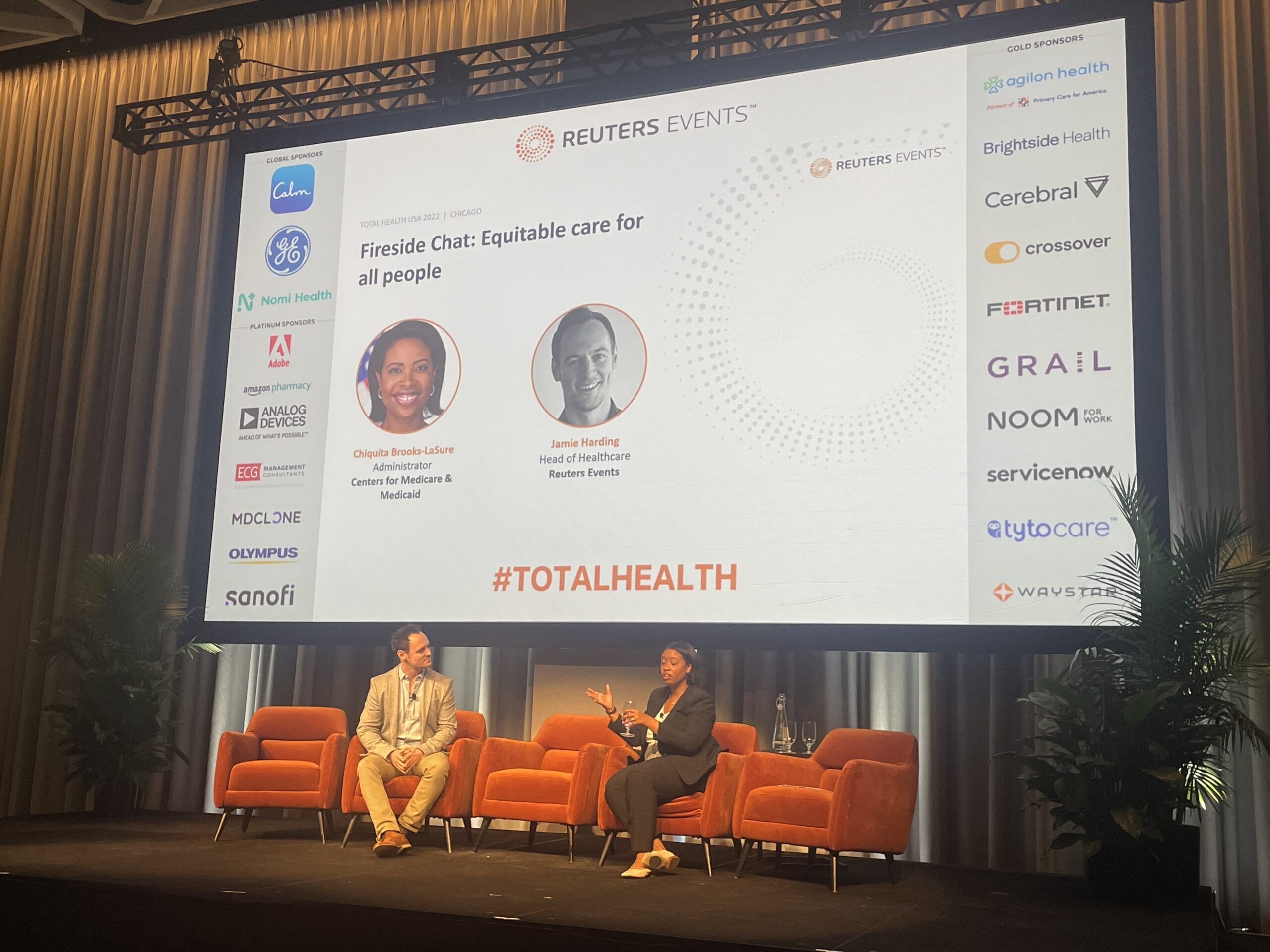
Jamie Harding, head of healthcare, Reuters Events, hosts a fireside chat with Chiquita Brooks La-Sure, the administrator for CMS.
The pandemic caused the federal government to suspend limits on the use of telehealth and allowed providers to get reimbursed for taking care of patients virtually. But what happens when the public health emergency ends and the waivers go away? How would the Centers for Medicare and Medicaid Services reimburse a service that has proved hugely popular during Covid-19 and which continues to have high utilization by people seeking mental health assistance online?
That was the question, Jamie Harding, head of healthcare, Reuters Events, posed to CMS Administrator Chiquita Brooks-LaSure, who was speaking Friday at the Total Health conference hosted by Reuters.

Behavioral Health, Interoperability and eConsent: Meeting the Demands of CMS Final Rule Compliance
In a webinar on April 16 at 1pm ET, Aneesh Chopra will moderate a discussion with executives from DocuSign, Velatura, and behavioral health providers on eConsent, health information exchange and compliance with the CMS Final Rule on interoperability.
La-Sure responded that the agency is broadly supportive of telehealth within the parameters of what Congress has authorized.
“[Mental health is an area] where Congress has given us authority to — in the Medicare program — extend that permanently and that’s something that we are really working toward, ensuring that people have access” Brooks-LaSure said, noting that Congress has extend telehealth provisions beyond the public health emergency in some other areas besides behavioral though she didn’t specify which. “We have limited authority beyond what Congress is doing.”
She noted that in Medicaid and in the Affordable Care Act-spurred healthcare exchanges there is more flexibility so states have the freedom to make their own decisions about telehalth reimbursement. While Brooks-LaSure signaled broad support for telehealth coverage, she did point out that telehealth is not without its flaws.
‘This is really a place where we continue to look at data because we have seen expansions in coverage and we’ve also seen disparities too,” Brooks-LaSure said. “Particularly, we’re seeing that Black and Brown and lower income people are not experiencing some of the advantages because of teleheatlh at the same rate.”

A Deep-dive Into Specialty Pharma
A specialty drug is a class of prescription medications used to treat complex, chronic or rare medical conditions. Although this classification was originally intended to define the treatment of rare, also termed “orphan” diseases, affecting fewer than 200,000 people in the US, more recently, specialty drugs have emerged as the cornerstone of treatment for chronic and complex diseases such as cancer, autoimmune conditions, diabetes, hepatitis C, and HIV/AIDS.
She added that this is a concern and the agency is focusing on how the benefits of telehealth reaches a wider set of people.
“So we’re also cognizant of really making sure that as additional opportunities emerge that really, again, it’s reaching a broad, broad population.
Photo: Katie Adams, MedCity News












